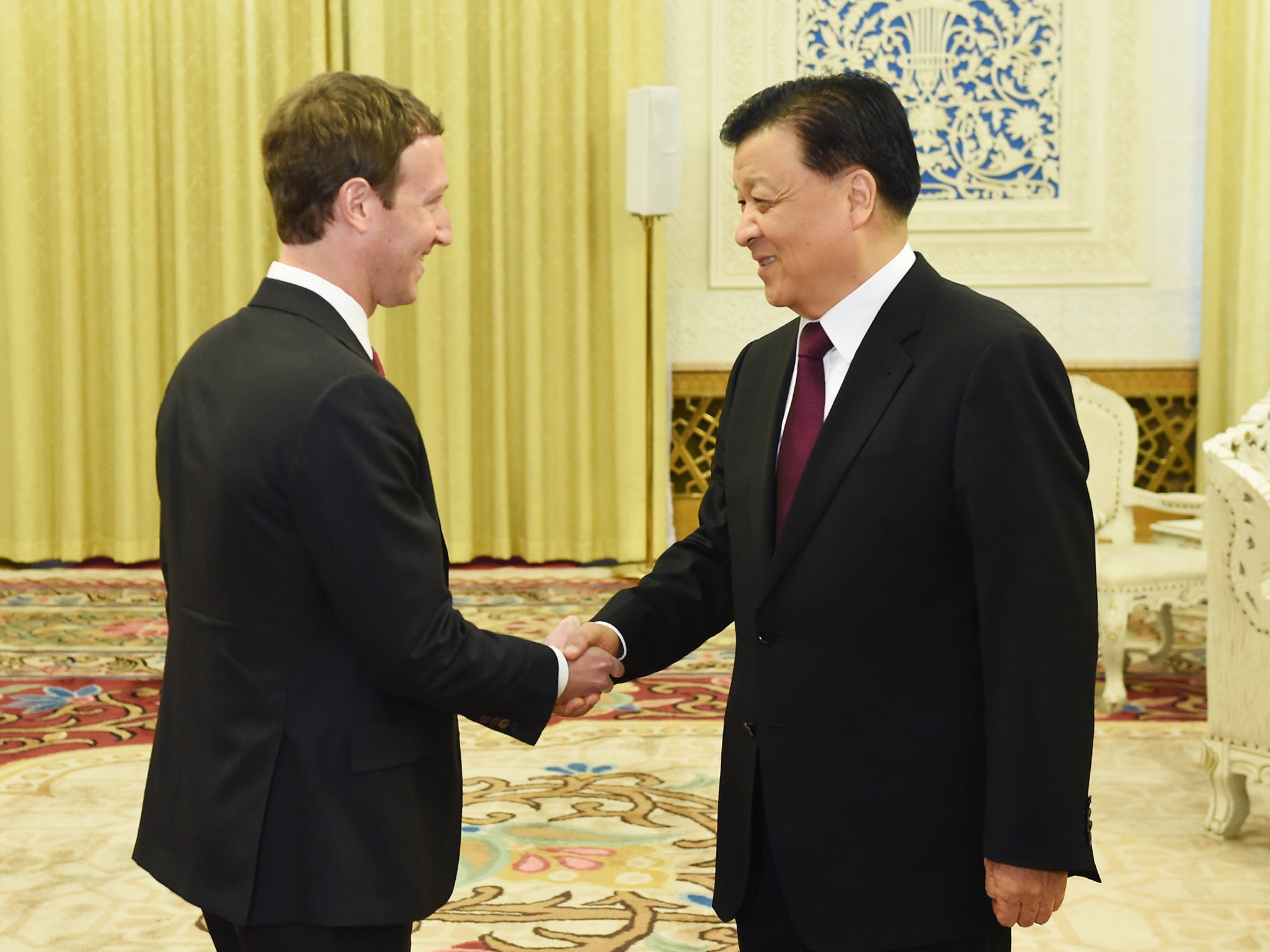Facebook's Mark Zuckerberg meets Chinese propaganda minister
Social network site has been blocked in China since it was used to organise riots in which 200 people died

Your support helps us to tell the story
From reproductive rights to climate change to Big Tech, The Independent is on the ground when the story is developing. Whether it's investigating the financials of Elon Musk's pro-Trump PAC or producing our latest documentary, 'The A Word', which shines a light on the American women fighting for reproductive rights, we know how important it is to parse out the facts from the messaging.
At such a critical moment in US history, we need reporters on the ground. Your donation allows us to keep sending journalists to speak to both sides of the story.
The Independent is trusted by Americans across the entire political spectrum. And unlike many other quality news outlets, we choose not to lock Americans out of our reporting and analysis with paywalls. We believe quality journalism should be available to everyone, paid for by those who can afford it.
Your support makes all the difference.Facebook chief executive Mark Zuckerberg has held a meeting with the man responsible for maintaining China's strict propaganda policy.
Liu Yunshan is one of the people who oversees China's "Great Firewall", ensuring the country's nearly 1.4bn inhabitants can only access a strictly censored version of the internet.
According to state-sponsored news sources in China, Mr Liu told Mr Zuckerberg that Facebook should share its knowledge, experience and data in order to help "internet development better benefit the people of all countries."
Mr Liu was head of the Central Propaganda Department between 2002 and 2012. He is now the First-ranked Secretary of the Central Secretariat of the Communist Party of China.
He also continues to hold a position in the Politburo Standing Commitee, and work as the Chairman of the Commission for Building Spiritual Civilisation, chief of the Propaganda and Ideology Leading Group and President of the Central Party School. He is seen as China's top official overseeing ideology and propaganda work.
Chinese dissident Tie Liu has written: "For over a decade, with publishing and television all under Liu Yunshan's control, there hasn't been a single newspaper reporting the truth, not a single book that could stand on its feet, and not a single good movie or television series."
The meeting, held as the Facebook chief executive visited Beijing for an economic conference, comes at a time when the Chinese government is tightening its control over the internet.
Facebook and Twitter are already banned, while online news sources tend to be heavily censored in order to fit the political agenda of the country. And Mr Liu recently warned internet users not to cross the "baseline" when discussing the country's ruling Communist party.
Despite Facebook being blacklisted by the government, Mr Zuckerberg remains a popular figure among China's tech-savvy metropolitan population. He has been unsuccessfully wooing the Chinese government for years to try and access the country with the world's largest number of internet users.
The website was once accessible to Chinese citizens, but it was blocked following the Ürümqi riots in 2009, when Xinjiang independence activists used Facebook to organise civil unrest.
Between 200 and 600 people died in the anti-government riots, while at least 10 men have since been executed for their role in the conflict. The riots were sparked by tensions between the Han majority and the Uyghur ethnic group, who are agitating for greater independence and access to land they view as rightfully theirs.
Chinese people are able to access Renren, a site similar to Facebook which complies with the government's strict censorship laws. Users are blocked from posting about subjects such as the Tianamen Square massacre, anti-government activism and the counter-cultural religious practice Falun Gong.
Join our commenting forum
Join thought-provoking conversations, follow other Independent readers and see their replies
Comments